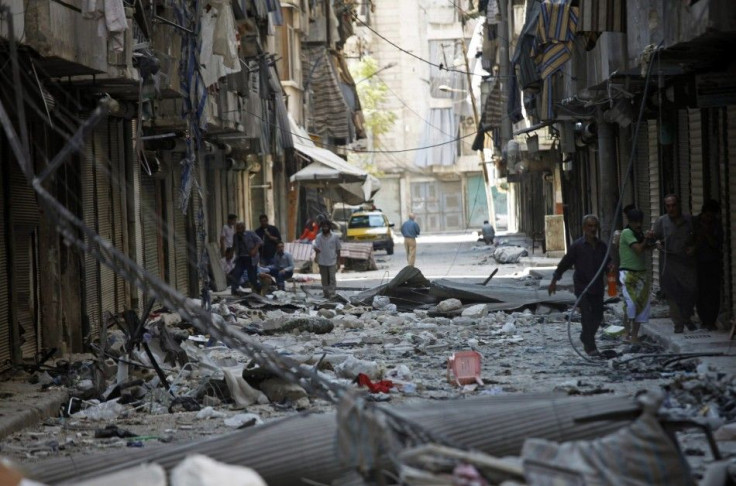Syrians To Consider Cease-fire For Eid Al-Adha Holiday

International diplomats are pushing for a temporary cease-fire in Syria later this month, in an attempt to resolve the increasingly bloody and complicated conflict there.
Former Algerian Foreign Minister Lakhdar Brahimi, who replaced Kofi Annan as the United Nations special envoy to Syria in August, is recommending that the cease-fire take place during the Eid al-Adha holiday, which begins on Oct. 25 and typically lasts for a few days.
Brahimi has already discussed the plan with diplomats from Turkey, Jordan and the Arab League, all of which support the Syrian rebel movement, and Iran, which backs the regime of Syrian President Bashar al-Assad. All have conveyed their support for the cease-fire.
“The cease-fire and negotiations on free elections in my view is the correct road to resolution,” said Iranian President Mahmoud Ahmadinejad to reporters on Wednesday.
Syrian regime officials have expressed guarded amenability to the idea, as long as the rebel forces also agree to uphold the cease-fire. Brahimi said his official meeting with the regime is slated for Saturday.
“Yes, I am going to Syria,” he said, according to Reuters. “This appeal we made to our Syrian brothers, whether in the government or against the government, to stop fighting in the three or four days of the Eid next week.”
The timing is fitting. Eid al-Adha is one of Islam’s holiest holidays. It celebrates the willingness to sacrifice for the greater good.
The holiday commemorates a story in the Quran, wherein the patriarchal figure Ibrahim prepares to sacrifice his son Ismael, in accordance with Allah’s wishes. The deity stops him at the last second, providing him with a lamb instead for the sacrifice. Ismael survives, and Ibrahim proves his religious devotion. Christians and Jews will remember parallel versions of that same story in the Old Testament and the Torah.
The holiday is celebrated with an eye toward societal welfare; participants often share food and other resources with poorer neighbors in an attempt to ease suffering -- however briefly -- in the community.
Today in Syria, suffering is at an all-time high. Rebel forces loosely organized under the banner of the Free Syrian Army have fought against Assad’s formidable forces for 19 months in an attempt to overthrow the regime. The death toll has now risen to an estimated 25,000 or more. Weaponry on both sides is becoming more sophisticated and devastating.
A cease-fire would be a welcome respite, but past efforts at reconciliation have failed repeatedly. Brahimi hopes that this cease-fire can succeed even though it is meant to be entirely self-imposed on both sides, without monitoring.
According to him, it is all part of a longer process.
“This is an appeal to the Syrians themselves that they stop fighting and observe it themselves,” he explained. “This is not the political process or the solution required to the Syrian crisis.”
That solution remains far off, but Brahimi is making a concerted effort to make that solution as inclusive as possible.
“It's difficult to put a timeline on it, but it's all coming together," explained his spokesman Ahmad Fawzi to Reuters.
“He has completed the circle with this tour of neighboring countries. He needs to go now to the outer circle, to Moscow and China, and look them in the eye and say this will not work unless you support it.”
© Copyright IBTimes 2024. All rights reserved.












